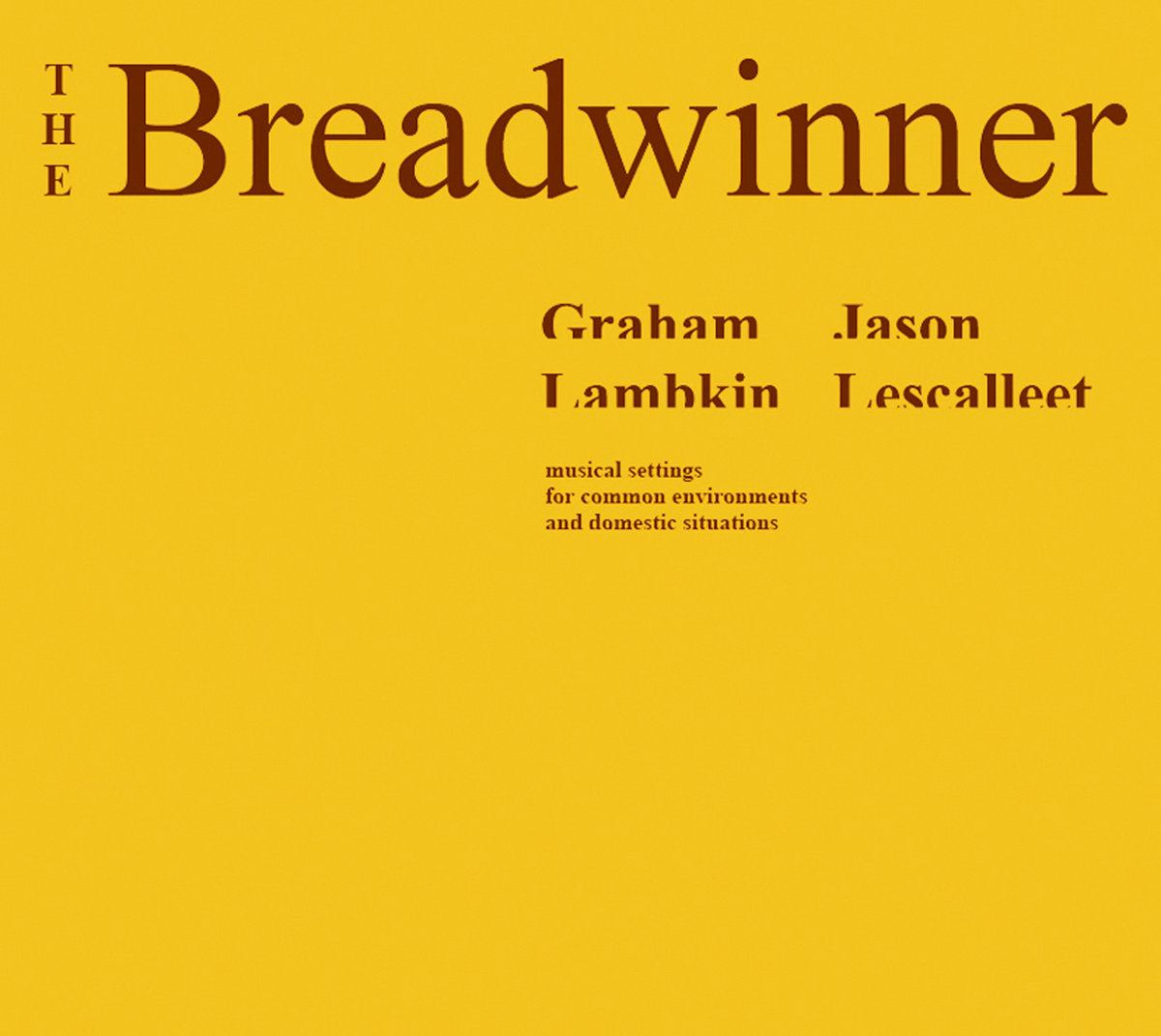
The Breadwinner is a particularly complex record, not least because of how it sounds. The first track "Listen the Snow is Falling" pairs intensely intimate creaking, rustling, whistling with a heavenly choir.
Perhaps this description lays bear the core of this album; the cover a reference to Robert Ashley's Private Parts, it's not hiding what it's about. Perhaps most obviously it's about the worship of domesticity (that heavenly choir!), but to say that alone does not do it justice.
A lot of Lambkin's on this album feels very restless, overstimulated. I have been living with construction noise outside of my house for a year now, the moments of silence are not silence but anticipation for the next moment that a jack hammer, or a drill, or a saw, or a grinder, goes off. This feeling of the domestic rhythm is almost replicated here, the second track (There and Back) is comprised of what sounds like: ice being stirred in a cup, a chair being dragged across the floor, fireworks in the distance, but the composition is that of cycles.
In minimalist composition the idea of phasing is used but is entirely predictable (even if the resulting sound is not); the real world is not so kind, parts of this album feel like an extrapolation of phasing into something more natural. A lot of this work was done on tape loops, perhaps this contributes to the more natural rhythm (we can see this in early phase work too); what is interesting however is that the tape itself took up space in the home, almost as if by being there it would impart the aura onto the tape. And perhaps it did, in some small way, through microscopic magnetic fluctuations.
Something about this album captures the feeling of hearing the domestic soundscape and not in a particularly fetishistic way, I don't think this album fully venerates at any point, some parts are transcendent feeling (Track 1 and 3 especially) but neither seem to claim that what you're hearing is 'higher-art' than anything else.
Where pop music has definitely dealt with domestic life (see: Queen - Break Free, The Korgis - Domestic Bliss, and so on) it seems ill-equipped to deal with the minutae like this album approaches, Private Lives too approaches this, perhaps from the more pop angle, but relies heavily on techniques you would never hear on the radio.
I think, at least the concept of a music that concerns the home, the Private Life, is something to consider. Plenty of artists have released 'lockdown' home-recording albums, but bedroom pop is defined in some sense by the lack of access to the studio instead of the particulars of living at home, and creating art within it.